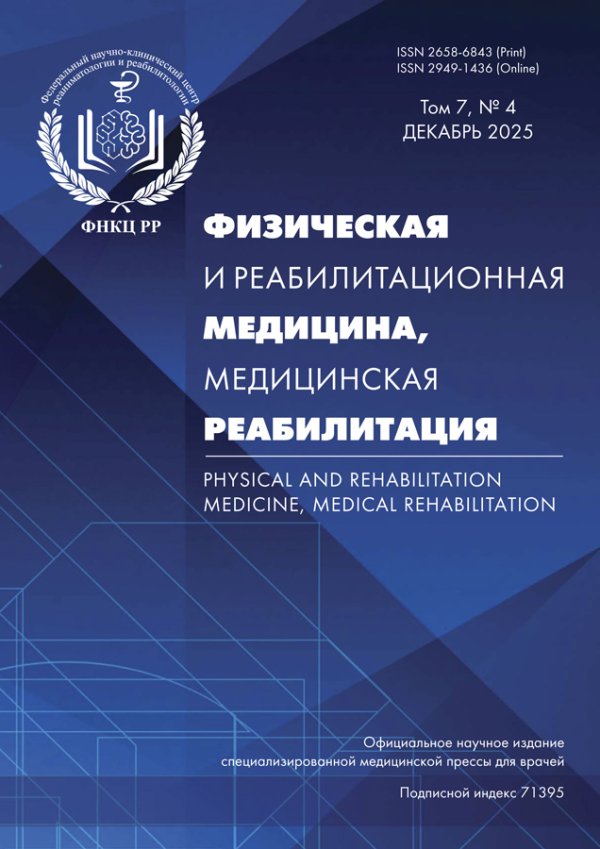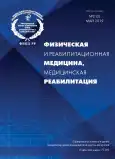ВЗАИМОДЕЙСТВИЕ СИМБИОТИЧЕСКОЙ МИКРОБИОТЫ желудочно-кишечного тракта с нервной системой организма-хозяина
- Авторы: Олескин А.В.1
-
Учреждения:
- ФГБОУ ВО «Московский государственный университет имени М.В. Ломоносова»
- Выпуск: Том 1, № 2 (2019)
- Страницы: 90-100
- Раздел: Статьи
- URL: https://journal-vniispk.ru/2658-6843/article/view/19193
- DOI: https://doi.org/10.36425/2658-6843-19193
- ID: 19193
Цитировать
Полный текст
Аннотация
Симбиотические микроорганизмы заселяют всевозможные ниши на поверхности и внутри организма животного или человека, причем особенно важную роль играет микробиота желудочно-кишечного тракта (ЖКТ), в первую очередь его «густонаселенной» микроорганизмами дистальной части (толстой кишки). Различные микробные метаболиты в рамках двунаправленного обмена сигналами в системе микробиота-хозяин способны модифицировать функции нервной системы через метаболические, эпигенетические и нейроэндокринные механизмы. С учетом все возрастающего понимания роли микробиоты ЖКТ для здоровья и психики индивида предложено расширить известный термин «ось кишечник-мозг» (gut-brain axis) до «ось микробиота-кишечник-мозг» (microbiota-gut-brain axis). Кишечная микробиота непосредственно взаимодействует с энтеральной нервной системой (ЭНС), которая обладает значительной автономией по отношению к остальным частям нервной системы; важную роль играет также иннервирующий ЖКТ блуждающий нерв. Наконец, эффекты микробиоты на нервную систему могут быть опосредованы ее воздействием на иммунную систему. Воздействие микробиоты на нервную систему приводит к существенным изменениям в поведении, настроении и даже вкусовых предпочтениях хозяина. В литературе представлены данные о взаимосвязи нервно-психических заболеваний и микроэкологических нарушений в ЖКТ. В частности, дисбиозы с выраженной желудочно-кишечной симтоматикой часто сопровождаются функциональными нарушениями головного мозга.
Полный текст
Открыть статью на сайте журналаОб авторах
Александр Владимирович Олескин
ФГБОУ ВО «Московский государственный университет имени М.В. Ломоносова»
Email: aoleskin@rambler.ru. oleskiny@yandex.ru
Москва, Россия
Список литературы
- Man W.H., de Steenhuijsen Piters W.A., Bogaert D.; The microbiota of the respiratory tract: gatekeeper to respiratory health; Nature Reviews Microbiology; 2017; 15: 259-270.
- Liang S., Wu X., Jin F.; Gut-brain physiology: rethinking psychology from the microbiota-gut-brain axis; Frontiers in Integrative Neuroscience; 2018; 12: 1-24.
- Sharkey K.A., Savidge T.C.; Role of enteric neurotransmitters in host defense and protection of the gastrointestinal tract; Anatomic Neuroscience: Basic and Clinical; 2014; 182: 70-82.
- Dinan T.G., Stilling R.M., Stanton C., Cryan J.F.; Collective unconscious: how gut microbes shape human behavior; Journal of Psychiatric Research; 2015; 63: 1-9.
- Clarke G., Grenham S., Scully P., Fitzgerald P., Moloney R.D., Shanahan F., Dinan T.G., Cryan J.F.; The microbiota-gut-brain axis during early life regulates the hippocampal serotonin system in a sex-dependent manner; Molecular Psychiatry; 2013; 18: 888-673.
- Олескин А.В., Шендеров Б.А.; Биополитический подход к реабилитологии: потенциальная роль микробной нейрохимии; Вестник восстановительной медицины; 2013; 1: 60-67.
- Shenderov B.A. Probiotic (symbiotic) bacterial languages; Anaerobe; 2011; 17: 490-495.
- Shenderov B.A.; The microbiota as an epigenetic control mechanism. Chapter 11. In: L. Nibali, B. Henderson (ed.); The Human Microbiota and Chronic Disease: Dysbiosis as a Cause of Human Pathology. 1st Edition; L., N.Y.: J.Wiley & Sons; 2016: pp.179-197.
- Шендеров Б.А., Синица А.В., Захарченко М.М.; Метабиотики: вчера, сегодня, завтра; Спб.: Крафт; 2017.
- Олескин А.В., Эль-Регистан Г.И., Шендеров Б.А.; Межмикробные химические взаимодействия и диалог микробиота-хозяин: роль нейромедиаторов; Микробиология; 2016; 85(1): 1 -24.
- Oleskin A.V., Shenderov B.A.; Neuromodulatory effects, targets of the SCFAs and gasotransmitters produced by the human symbiotic microbiota; Microbial Ecology in Health and Disease; 2016; 27: 30971-30982.
- Oleskin A.V., Shenderov B.A., Rogovsky V.S.; Role of neurochemicals in the interaction between the microbiota and the immune and the nervous system of the host organism Probiotics and Antimicrobial Proteins; 2017; 9(3): 215-234.
- Oleskin A.V., Zhilenkova O.G., Vodolazov I.R.; Biotechnology and microbial neurochemistry: Biotechnological implications of the role of neuromediators in microbial systems; Advances in Biotechnology and Microbiology; 2017; 2(4): 001 -004.
- Wenner M.; Going with his gut bacteria; Sci. Amer.; 2008; July: 90-92.
- Asano Y., Hiramoto T., Nishino R., Aiba Y., Kimura T., Yoshihara K., Kimura T., Yoshihara K., Koga Y., Sudo N.; Critical role of gut microbiota in the production of biologically active, free catecholamines in the gut lumen of mice; Amer. J. Physiol Gastrointest Liver Physiol.; 2012; 303: 1288-1295.
- Norris V., Molina F., Gewirtz A.T.; Hypothesis: bacteria control host appetites; Journal of Bacteriology; 2013; 195: 411-416.
- Lyte M.; Microbial endocrinology and nutrition: A perspective on new mechanisms by which diet can influence gut-to brain-communication; Pharma Nutrition; 2013; 1; 35-39.
- Lyte M.; Microbial endocrinology in the microbiome-gut-brain axis: how bacterial production and utilization of neurochemicals influence behavior; Plos Pathogen.; 2013; 9(11); 1003726.
- Stilling R.M., Bordenstein S.R., Dinan T.G., Cryan J.F. Friends with social benefits: host-microbe interactions as a driver of brain evolution and development?; Front Cell Infect Microbiol; 2014; 4. doi: 10.3389/ fcimb.2014.00147.
- Montiel-Castro A.J., Gonzalez-Cervantes R.M., Bravo-Ruiseco G., Pacheco-Lopez G.; The microbiota-gut-brain axis: neurobehavioral correlates, health and sociality; Frontiers in Integrative Neuroscience; 2013; 7. https://doi.org/10.3389/fnint.2013.00070.
- Verbrugge E., Boyen F., Gaastra W., Bekhuis L., Leyman B., Van Paris A., Haesebrouck F., Pasmans F.; The complex interplay between stress and bacterial indections in animals; Veterinary Microbiology; 2012; 155: 115-127.
- Шендеров Б.А.; Микробная экология и ее роль в поддержании здоровья; Метаморфозы; 2014; 5: 72-80.
- O'Mahony S.M., Clarke G., Borre Y.E., Dinan T.G., Cryan J.F. Serotonin, tryptophan metabolism and the brain-gut-microbiome axis; Behavior and Brain Research; 2014; 277: 32-48.
- Ивашкин В.Т., Ивашкин К.В.; Кишечный микробиом как фактор регуляции деятельности энтеральной и центральной нервной системы; Российский журнал гастроэнтерологии, гепатологии и колоректопроктологии; 2018; 27(5): 11-19.
- Crumeyrolle-Arias M., Jaglin M., Bruneau A., Vancassel S., Cardona A., Daugé V., Nudn L., Rabot S.; Absence of the gut microbiota enhances anxiety-like behavior and neuroendocrine response to acute stress in rats // Psychoneuroendocrinology. 2014. V.42. P.207-217.
- Foster J.A., Lyte M., Meyer E., Cryan J.F.; Gut microbiota and brain function: an evolving field in neuroscience; International Journal of Neuropsychopharmacology; 2016; 19(5): pyv114.
- Luo Y., Zeng B., Zeng L., Du X., Li B., Huo R., Liu L., Way H., Dong M., Pan J., Zheng P., Zhou C., Wei H., Xie P.; Gut microbiota regulates mouse behavior through glucocorticoid receptor pathway genes in the hippocampus; Translational Psychiatry; 2018; 8: 187.
- Desbonnet L., Clarke G., Shanahan F., Dinan T.G., Cryan J.F.; Microbiota is essential for social development in the mouse; Molecular Psychiatry; 2014; 19; 146-148.
- Sudo N., Chida Y., Aiba Y., Sonoda J., Oyama N., Yu X. N., Kubo C., Koga Y.; Postnatal microbial colonization programs the hypothalamic-pituitary-adrenal system for stress response in mice; Journal of Physiology; 2004; 558: 263-275.
- Sampson T.R., Mazmanian S.K.; Control of brain development, function, and behavior by the microbiome; Cell Host Microbe; 2015; 17(5): 565-576.
- Parashar A., Udayabanu M.; Gut microbiota regulates key modulators of social behavior; European Neuropsychopharmcology; 2016; 26: 78-91.
- Bercik P., Collins S.M., Verdu E.F.; Microbes and the gut-brain axis; Neurogastoenterology Motility; 2012; 24(5): 405-413.
- van de Wouw M., Schellekens H., Dinan T.G., Cryan J.F.; Microbiotagut-brain axis: modulator of host metabolism and appetite; Journal of Nutrition; 2017; 147: 727-745.
- Gur T.L., Worly B.L., Bailey M.T.; Stress and the commensal microbiota: importance in parturition and infant neurodevelopment; Frontiers in Psychiatry; 2015; 6: Article 5.
- Desbonnet L., Clarke G., Traplin A., O'Sullivan O., Crispie F., Moloney R.D., Cotter P.D., Dinan T.G, Cryan J.F.; Gut microbiota depletion from early adolescence in mice: Implications for brain and behavior; Brain, Behavior, and Immunity; 2015; 48: 165-173.
- Rao M., Gershon M.D.; The bowel and beyond: the enteric nervous system in neurological disorders; Nature Reviews. Gastroenerology and Hepatology; 2016; 13: 517-528.
- Шендеров Б.А.; Функциональное питание и его роль в профилактике метаболического синдрома; М.: ДеЛи Принт; 2008.
- Lyte M.; Microbial endocrinology: an ongoing personal journey. In: M. Lyte (ed.); Microbial Endocrinology: Interkingdom Signaling in Infectious Disease and Health; New York: Springer; 2016: pp.1-24.
- Westfall S., Lomis N., Kahouli I., Dia S.Y., Singh S.P., Prakash S.; Microbiome, probiotics and neurodegenerative diseases: deciphering the gut brain axis; Cellullar and Molecular Life Sciences; 2017; 74: 3769-3787.
- Mazzoli R., Pessione E.; The neuro-endocrinological role of microbial glutamate and GABA signaling; Frontiers in Microbiology; 2016; 7: 1934.
- Libersart F., Delago A., Gal R.; Manipulation of host behavior by parasitic insects and insect parasites; Annual review of entomology; 2009; 54: 189-207.
- Adamo S., Webster J.P.; Neural parasitology: how parasites manipulate host behavior; Journal of Experimental Biology; 2013; 216(1): 1-2.
- Lewin-Epstein O., Aharonov R., Haday L.; Microbes can help explain the evolution of host altruism; Nature Communications; 2017; 8: 14040.
- Rohrscheib C.E., Brownlie J.C.; Microorganisms that manipulate complex animal behaviours by affecting the host's nervous system; Springer Science Reviews; 2013; 1: 133-140.
- Rao S., Schieber A.M., O'Connor C.P., Leblanc M., Michel D., Ayres J.S.; Pathogen-induced inhibition of anorexia promotes host survival and transmission; Cell; 2017; 168: 503-516.
- Johnson K.V.-A., Foster K.R.; Why does the microbiome affect behavior?; Nature Reviews Microbiology; 2018; 16: 647-655.
- Rooks M.G., Garrett W.S.; Gut microbiota, metabolites and host immunity; Nature Reviews Immunology; 2016; 16: 341-352.
- Ayres J.S. Cooperative microbial tolerance behaviours in host-microbiota mutualism; Cell; 2016; 165: 1323-1331.
- Шендеров Б.А., Голубев В.Л., Данилов А.Б., Прищепа А.В.; Кишечная микробиота человека и нейродегенеративные заболевания; Неврология; 2016; 1: 7-13.
- McCusker R.H., Kelley K.W.; Immune-neural connections: how the immune system's response to infectious agents influences behavior; Journal of Experimental Biology; 2013; 216 (1): 84-98.
- Lyte M.; Microbial endocrinology and the microbiota-gut-brain axis; In: M. Lyte, J.F. Cryan (ed.); Microbial Endocrinology: The Microbiota-Gut-Brain Axis in Health and Disease. Advances in Experimental Medicine and Biology. 817; New York: Springer; 2014: pp.3-24.
- McFall-Ngai M., Hadfield M.G., Bosch T.C.G., Carey H.V., Domazet-Loso T.; Animals in a bacterial world, a new imperative for the life sciences; Proceedings of the National Academy of Sciences of the U.S.A.; 2013; 110:3229-3236.
- Hawrelak J.A.; The causes of intestinal dysbiosis: a review; 2004. http://findarticles.com/p/articles/mim0FDN/is29/ain6112781/ print?tag=artBody;col1.
- Barker D.J., Osmond C.; Infant mortality, childhood nutrition, and ischaemic heart disease in England and Wales; Lancet; 1986; 1: 10771081.
- Cowan C.S.M., Hoban A.E., Ventura-Silva A.P., Dinan T.G., Clarke G., Cryan J.F.; Gutsy moves: the amygdala as a critical node in microbiota to brain signaling; Bioessays; 2017; 40: 1700172.
- Kelly J.R., Borre Y., O' Brien C, Patterson E., El Aidy S, Deane J., Kennedi P.L., Beers S., Scott K.A., Moloney G., Hoban A.E., Scott L., Fitzgerald P., Ross P., Stanton C.; Transferring the blues: depression-associated gut microbiota induces neurobehavioural changes in the rat; Journal of Psychiatric Research; 2016; 82: 109-118.
- de Palma G., Lynch M.D.J., Lu J., Dang V.T., Deng Y., Jury J., Umeh G., Miranda P.M., Pastor M.P., Sidani S., Pinto-Sanchez M.I., Philip V., McLean P.G., Hagelsieb M.-G., Surette M.G., Bergonzelli G.E., Verdu E.F., Britz-McKibbin P., Neufeld J.D., Collins S.M., Bercik P.; Transplantation of fecal microbiota from patients with irritable bowel syndrome alters gut function and behavior in recipient mice; Science Translational Medicine; 2017; 9: eaaf6397.
- MacFabe D.F.; Short-chain fatty acid fermentation products of the gut microbiome: implications in autism spectrum disorders; Microbial Ecology in Health and Disease; 2012; 23: 19260.
- Валышев А.В., Гильмутдинова Ф.Г.; Микробная экология пищеварительного тракта человека; О.В. Бухарин (ред.); Экология микроорганизмов человека; Екатеринбург: Институт клеточного и внутриклеточного симбиоза; 2006: с. 169-290.
- Giau V.V., Wu S.Y., Jamerlan A., An S.S.A., Kim S.Y., Hulme J.; Gut microbiota and their neuroinflammatory implications in Alzheimer's disease; Nutrients; 2018; 10: 1765.
Дополнительные файлы







